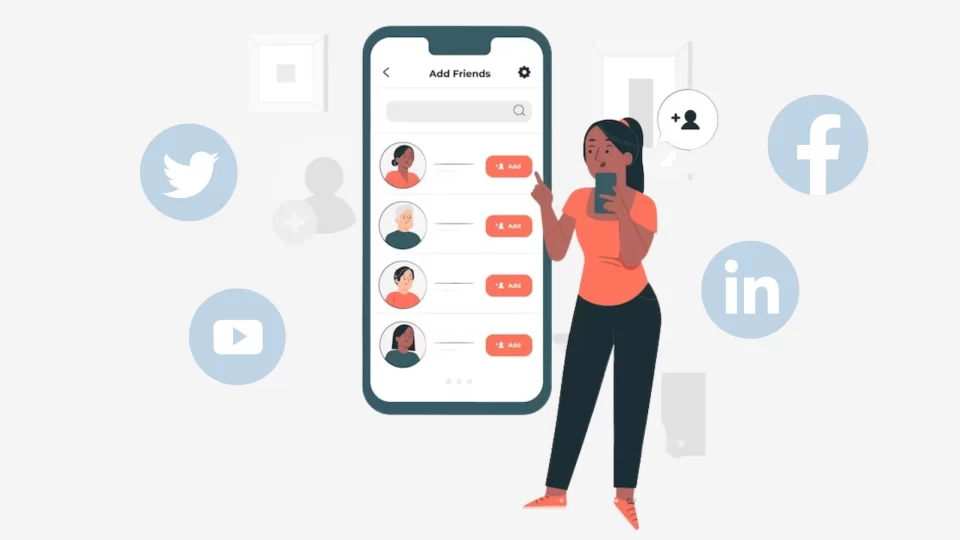Decoding the Digital Footprint: Navigating the Nuances of Social Media Background Checks
In today’s hyper-connected world, a candidate’s online presence often speaks volumes, sometimes even before they step into an interview room. As businesses increasingly recognize the insights hidden within the digital realm, the practice of conducting a social media background check has moved from a novel concept to a crucial component of the hiring process. But navigating this digital terrain requires finesse, a keen understanding of ethical boundaries, and an eye toward the future.
At its core, a social media background assessment involves scrutinizing publicly available information on platforms to gain a more holistic view of an individual. It’s about looking beyond the polished resume to understand the person behind the application. We’ve seen firsthand how a seemingly innocuous post can reveal crucial aspects of a candidate’s character and professionalism. Think of the time a client bypassed a candidate whose public feed was rife with disparaging remarks about former employers – a clear red flag that a traditional background check social media might have missed.
Currently, best practices in this evolving field emphasize a cautious and compliant approach. Legally, it’s paramount to adhere to regulations like the FCRA and EEOC, ensuring that any social media background checks are conducted fairly and without discriminatory intent. Obtaining explicit consent isn’t just a formality; it’s a sign of respect for an individual’s privacy. The focus should always remain on publicly available, job-related data, steering clear of personal beliefs or protected characteristics that have no bearing on job performance.
Crafting a clear and well-defined policy is also essential. This outlines the purpose, the specific platforms under review, and the objective criteria used for evaluation. Consistency is key – applying the same standards across all candidates ensures fairness and mitigates potential bias. What are companies looking for? Often, it’s indicators of professionalism, responsible online conduct, and alignment with company values. Conversely, red flags might include evidence of illegal activities, discriminatory behavior, or a pattern of unprofessional communication. It’s a delicate balance, discerning relevant professional insights from the noise of personal lives.
Many organizations are turning to specialized third-party services to streamline this process. These platforms offer the advantage of objectivity and compliance, often employing sophisticated algorithms to filter out irrelevant information and flag potential concerns in a legally sound manner. This allows HR professionals to focus on the insights without getting bogged down in the complexities of manual social media background checks.
Looking ahead, the landscape of background check social media is poised for significant transformation. Artificial intelligence (AI) and machine learning are set to play an increasingly prominent role. Imagine AI-powered tools capable of analyzing vast amounts of online data to identify patterns of behavior or sentiment that could be relevant to a role. Predictive analytics might even emerge, helping to anticipate potential risks based on online activity.
Furthermore, the rise of visual content – think videos on platforms like TikTok and Instagram – presents both opportunities and challenges. Future screening processes may need to incorporate the analysis of non-verbal communication and visual presentation. Simultaneously, there’s a growing emphasis on “blind” screening techniques, aiming to minimize unconscious bias by obscuring personal details during the initial review phase. Evolving privacy regulations will also continue to shape how these checks are conducted, demanding ever greater transparency and respect for individual data.
For employers navigating this intricate terrain, the message is clear: proceed with diligence and a commitment to ethical practices. Develop robust policies, consider leveraging the expertise of third-party services, and stay informed about the latest technological advancements. Balance the need for due diligence with a deep respect for candidate privacy.
For job seekers, the digital age necessitates a heightened awareness of your online footprint. Your social media profiles are, in many ways, a public extension of your professional brand. Cultivating a professional online presence isn’t about being inauthentic; it’s about being mindful of how you present yourself in the digital sphere.
In conclusion, the social media background check is no longer a futuristic concept but a present-day reality. By embracing best practices and staying attuned to future trends, both employers and individuals can navigate this digital frontier responsibly and effectively. The key lies in understanding that a background check social media is not just about looking, but about seeing – seeing the potential, the risks, and the human being behind the screen.

